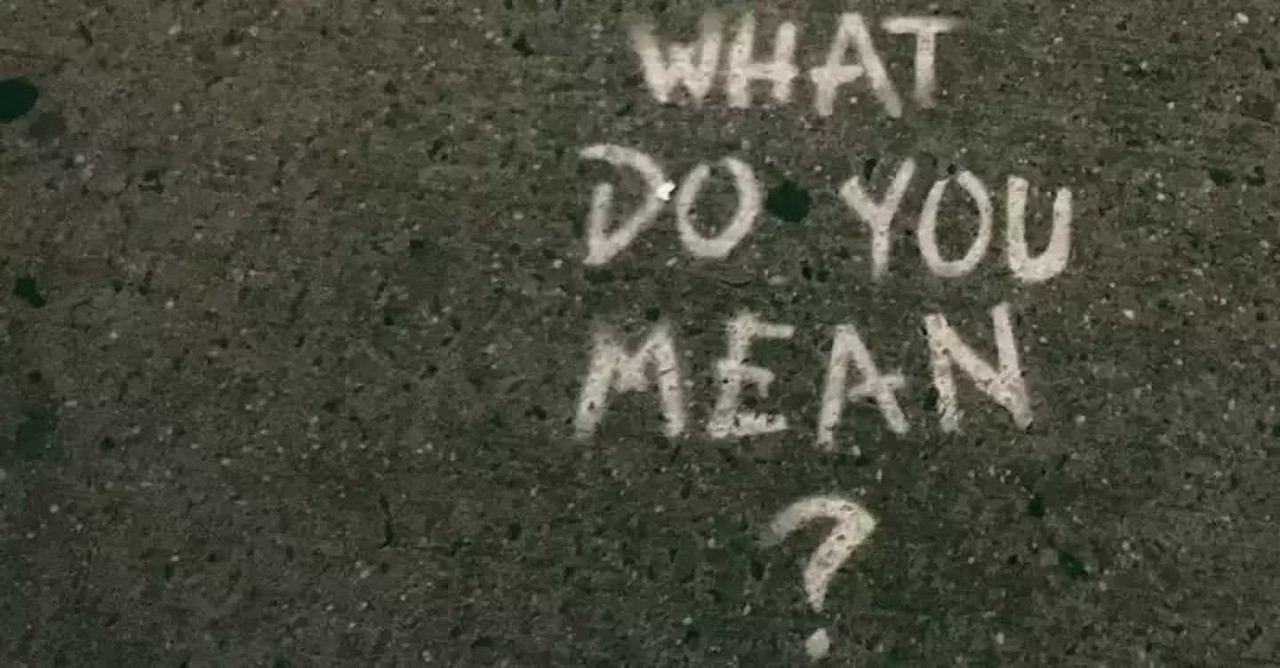Is ‘the End Justifies the Means’ a Biblical Concept?

You have probably heard someone say: the end justifies the means. If I were sitting right in front of you and asked you if this is true you, would probably have an answer. In fact, you probably just answered it in your mind.
However, what may seem simple on the surface really creates a moral dilemma. It poses questions that are not always easily answered. Here’s one: is this statement true? Secondly, if it is true, is it an absolute truth that applies all the time? Or is it a relative truth dictated by the circumstances surrounding it?
Taking our curiosity further:
How does this line of thinking line up with God’s way of thinking?
Can we find any direction from scripture to guide us?
Is this concept even found in the Bible?
As you can see, this five-word quote is questionable. Despite this, our job today is to dig a little deeper and see if we can find some answers. Let’s get started.
Photo Credit: ©Unsplash/John Fornander
The End Justifies the Means…What Does This Really Mean?

The End Justifies the Means…What Does This Really Mean?
SLIDE 1 OF 5
This quote has been attributed to the Italian political philosopher Niccolò Machiavelli. This quote means that wrong actions, or those that are perceived to be wrong, are sometimes necessary to produce a right result.
Another way of looking at it is, I might have to do something bad to produce a good outcome.
Nonetheless, this perspective would contend, if the outcome is good enough it outweighs any bad I may have to do to achieve it.
I hope you can see why this poses such a moral perplexity. So, what does Scripture say?
Is There an Example in Scripture?
In Joshua 2, the Israelites sent two spies secretly into Jericho to scout out the land. Upon arriving in the land, they stayed in the house of Rahab who was a prostitute. Eventually, the king of Jericho got word that the men were staying at Rahab’s house and he requested that she bring them out.
Obviously, Rahab knew if she turned them over something bad was going to happen to them. Here is how Rahab responded to the king’s request.
But the woman had taken the two men and hidden them. She said, “Yes, the men came to me, but I did not know where they had come from. At dusk, when it was time to close the city gate, they left. I don’t know which way they went. Go after them quickly. You may catch up with them.” (But she had taken them up to the roof and hidden them under the stalks of flax she had laid out on the roof.) So the men set out in pursuit of the spies on the road that leads to the fords of the Jordan, and as soon as the pursuers had gone out, the gate was shut. – Joshua 2:4-7
Let’s be straight here. Rahab was facing a moral dilemma and she lied to the king. Why did she do it?
Photo Credit: ©Unsplash/Kevin Wolf
Did Rahab Decide the End Justified the Means?

Did Rahab Decide the End Justified the Means?
SLIDE 2 OF 5
Rahab lied to the king to protect the men—but also to protect herself and her family. Notice her own words:
Before the spies lay down for the night, she went up on the roof and said to them, “I know that the Lord has given you this land and that a great fear of you has fallen on us, so that all who live in this country are melting in fear because of you. – Joshua 2:9
Now then, please swear to me by the Lord that you will show kindness to my family, because I have shown kindness to you. Give me a sure sign that you will spare the lives of my father and mother, my brothers and sisters, and all who belong to them—and that you will save us from death. – Joshua 2:12-13
As we have already established, Rahab lied. However, she was motivated by a stronger desire…to see her family saved from certain destruction. Her need to protect her family outweighed her need to tell the king the truth.
Here is where the moral conundrum comes into play. Was she right to lie to protect her family?
In this situation, you would have to say yes, the end did justify the means. In fact, Rahab became part of the genealogy of Christ and is included in the faith hall of fame. Notice Hebrews 11:31:
By faith the prostitute Rahab, because she welcomed the spies, was not killed with those who were disobedient.
She was not chastised for what she did, she was commended for welcoming the spies. Instead of being slapped on the wrist for lying, she was recognized for her faith. Am I saying that this statement is true all the time? Not at all.
However, you can’t exclude the reality that there are situations where this can be true. So, maybe, could our quest use some better questions?
Photo Credit: ©Unsplash/Actionvance
Are We Asking the Right Questions?

Are We Asking the Right Questions?
SLIDE 3 OF 5
To really get to the bottom of the meaning and application of the phrase “the end justifies the means,” it requires a commitment to asking the right questions. Even if we get the questions right, this only works if we give honest answers. There is no other way to get closer to solving this perplexity.
Here are some good questions:
What is my motivation for the actions I am taking?
What is the end I am trying to reach?
Am I really trying to serve a higher purpose or is it an excuse to do what I want to do?
If I feel it is serving a higher purpose, what standard am I using to define that?
Am I defining purpose by what’s important to God or what’s important to me?
Am I pursuing God’s agenda or my own?
Is it his honor and glory I am after or my own?
Are my actions lining up with Godly principles or selfish endeavors?
As you can see these are not questions that always have easy answers. They require you to search your heart to find the reasons why. While no one can know what’s in a person’s heart, these are the types of questions that will determine the validity of your actions. In Rahab’s case lying served a much higher purpose and God honored her for that.
Photo Credit: ©Unsplash/Jon Tyson
The Ultimate End Justified the Ultimate Mean

The Ultimate End Justified the Ultimate Mean
SLIDE 4 OF 5
If that wasn’t enough, here is some more food for thought. There was one end that was truly justified by the manner in which it was accomplished: our salvation.
Jesus—being innocent, perfect, and sinless—took on himself the ultimate punishment for our sin. He died a brutal death on a cross, after being whipped, mocked, humiliated, and beaten. What was the reason? To win our salvation and redeem us back to the Father.
Yet when you read Isaiah 53:10 you will discover that this was God’s plan all along.
One version even says it pleased the Lord to bruise him. God took what onlooker would see as the most hideous of actions (means) to bring about a glorious result (end).
...fixing our eyes on Jesus, the pioneer and perfecter of faith. For the joy set before him (end) he endured the cross, scorning its shame (mean), and sat down at the right hand of the throne of God. – Hebrews 12-2 (notes added)
God used great punishment to bring about our great salvation. I don’t think you will find any Christian that will disagree that in this instance the end did justify the means. So how do we apply this concept to our Christian walk?
Photo Credit: ©GettyImages/Romolo Tavani
Is There Really One Answer to This Question?

Is There Really One Answer to This Question?
SLIDE 5 OF 5
It is very difficult to take a statement like this and brush it with a broad, general stroke. The fact remains that you must consider each situation individually.
In other words, if someone asks you if the end justifies the means, the correct answer is, it depends. I wish there was one absolute answer for every situation, but unfortunately, there isn’t one. Circumstances matter. Motivations matter. What is happening in the moment matters. What is in a person’s heart matters.
Unfortunately, it’s too easy to stand on the sidelines and pronounce a quick judgment of yea or nay. Truthfully, a judgment can’t be made until you have heard and know all the details that have gone into the decision.
I can’t definitively say this quote is a biblical concept and I can’t definitively say that it is not.
What I can say is that we have to take the truth and principles of God’s word and apply them to every situation in our lives. Only then can we know, case by case, if the end justifies the means. I will leave you with a thought from Proverbs,
Trust in the Lord with all your heart; do not depend on your own understanding. Seek his will in all you do, and he will show you which path to take. – Proverbs 3:5-6 (NLT)
A Prayer for Discernment in Our Decisions
Dear God, I pray today for the wisdom to know what to do in every situation. Let my decisions be pleasing in your sight and ultimately bring you glory. Amen.
Photo Credit: ©Sparrowstock

He is the author of The Pursuit of Purpose, which helps readers understand how God leads them into his will, and the author of The Pursuit of Victory: How To Conquer Your Greatest Challenges and Win In Your Christian Life. Clarence is also committed to helping 10,000 people learn how to study the Bible and has released his first course, Bible Study Basics, to achieve that goal. To learn more about his ministry and resources, please visit clarencehaynes.com.
Originally published May 11, 2020.









